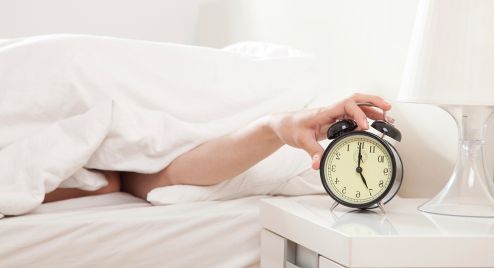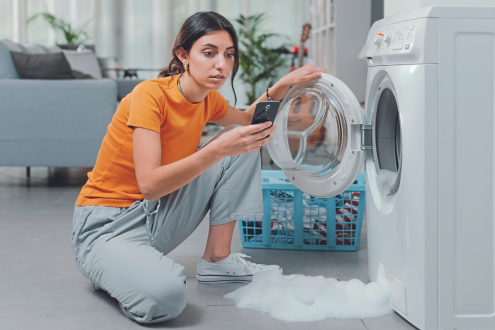Is your phone stopping you sleeping? Try this instead…
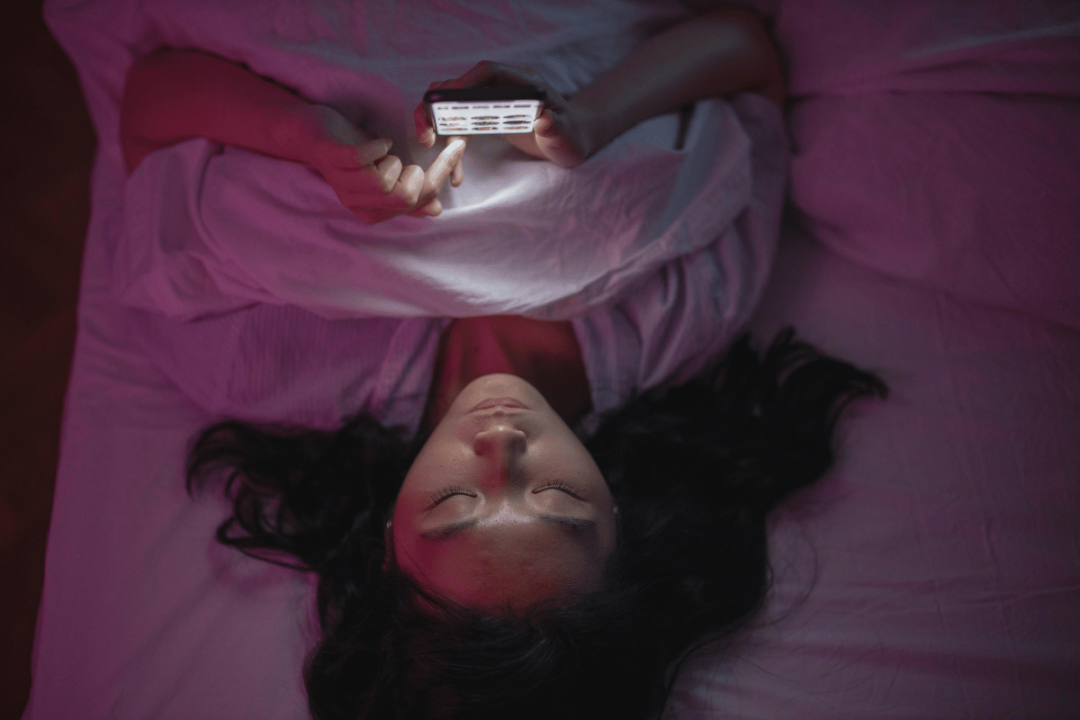
What if the key to better rest lies in something a little more old-fashioned – like a good book, asks Camilla Foster
Words: Camilla Foster
We’ve all been there a million times — after hopping into bed nice and early with a plan to curl up and get a good night’s snooze, you just nip onto your phone to check what that notification was… and reappear three hours later, after doomscrolling your lovely, restorative evening away.
It’s a common picture. Distraction is now one of the leading obstacles to reading for pleasure, according to a new report from The Reading Agency, and only 53% of UK adults now say they read regularly, compared to 58% in 2015.
But reading aside, is this late-night screen time affecting our sleep? And could swapping it for a book make a difference?
We asked the experts to find out…
‘Use of any screen late at night means your body continues to be alert, with the light exposure pushing back the natural timing of your body clock, making it harder to fall asleep,’ explains Dr Katharina Lederle, sleep and circadian rhythm specialist at The London General Practice.
Light exposure can cause less deep sleep, adds Lederle, meaning even if you do get a good amount of sleep, you may not feel well-rested. ‘By looking at your phone or laptop, you are effectively putting a mini-sun in front of your eyes,’ explains Lederle. ‘This will affect the secretion of melatonin, which is typically released a few hours before you go to sleep as the sun sets.
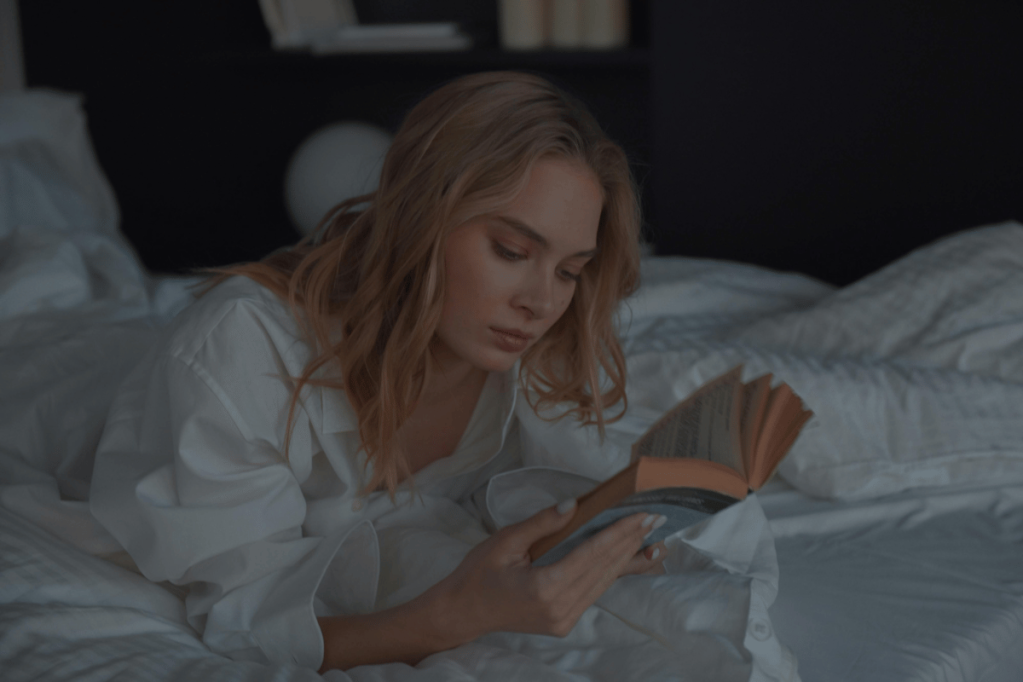
‘Evening light exposure, and particularly exposure to light from your phone, will suppress melatonin secretion, and your body clock needs melatonin to tell the rest of the body it is night-time. So, without it, there is no such message, meaning the body continues to be alert.’
How does reading a book before bed impact our sleep?
‘Reading provides a gentle cognitive focus that can help reduce stress,’ says Dr Rachael Molitor, a chartered psychologist and lecturer at Coventry University.
‘Reading slowly and calmly before bed activates our parasympathetic nervous system, the rest and digest system, helping to reduce heart rate and blood pressure and leading to a successful sleep onset.’
Fiction is generally considered more relaxing to read than non-fiction — which could have an impact on our sleep quality. ‘Fiction, especially familiar or light fiction, tends to be better for sleep because it gently distracts the mind without activating critical thinking or emotional intensity,’ explains Dr Lalitaa Suglani, psychologist and author of High Functioning Anxiety (Hay House, £12.99).
‘Non-fiction may be more stimulating, especially if it involves problem-solving, self-improvement, or emotionally charged material. Print books are ideal because they lack the backlight that disrupts melatonin,’ she adds.
‘E-readers with blue-light filters or “night mode” are better than phones, but still not as calming as physical books. Ultimately, the goal is low stimulation and emotional safety — books that don’t provoke stress, excitement, or analysis.’
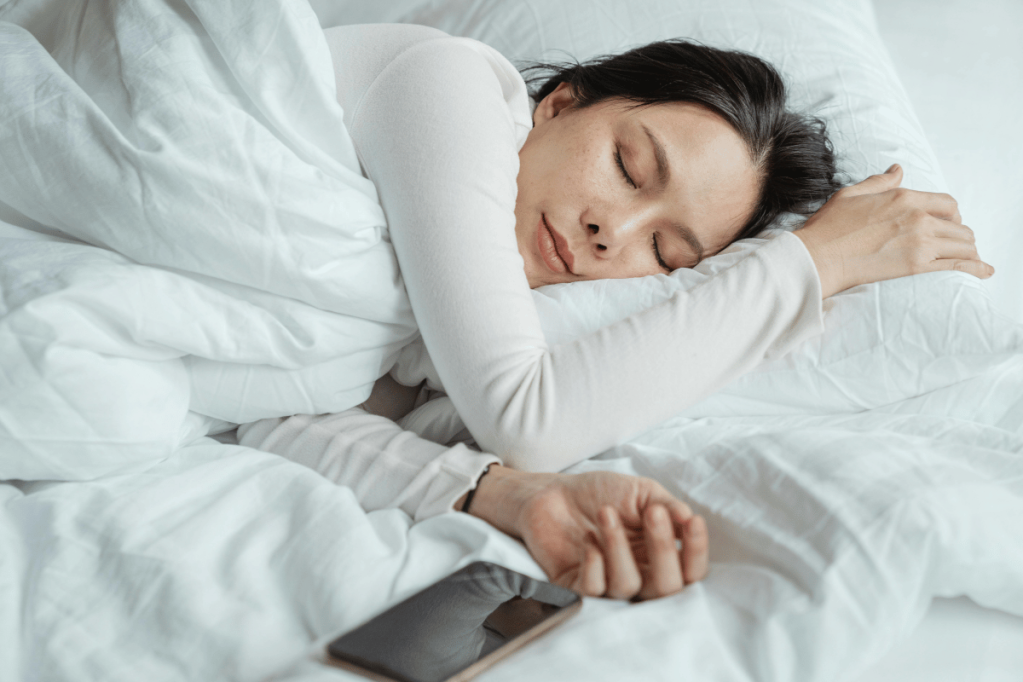
What makes scrolling more stimulating and addictive than reading? ‘Scrolling taps into the dopaminergic feedback loop, a cycle of anticipation, reward, and novelty-seeking that can become addictive,’ explains Suglani.
‘Social media, news feeds, or even texting right before sleep can activate the brain’s threat system or pleasure centers, keeping the body in a state of vigilance.’
On the other hand, reading has natural stopping points. ‘It doesn’t offer the same dopamine highs, which is exactly why it’s more calming for the nervous system,’ says Suglani. ‘Reading encourages sustained attention, something our overstimulated brains often crave but rarely experience through screens.’
‘Keeping the book visible and accessible near your bedside will allow a habit-stacking approach and producing a more successful behavioural change to support reading over scrolling,’ says Molitor.
Is your phone stopping you from doing other things, like essential chores? Read our advice here.

